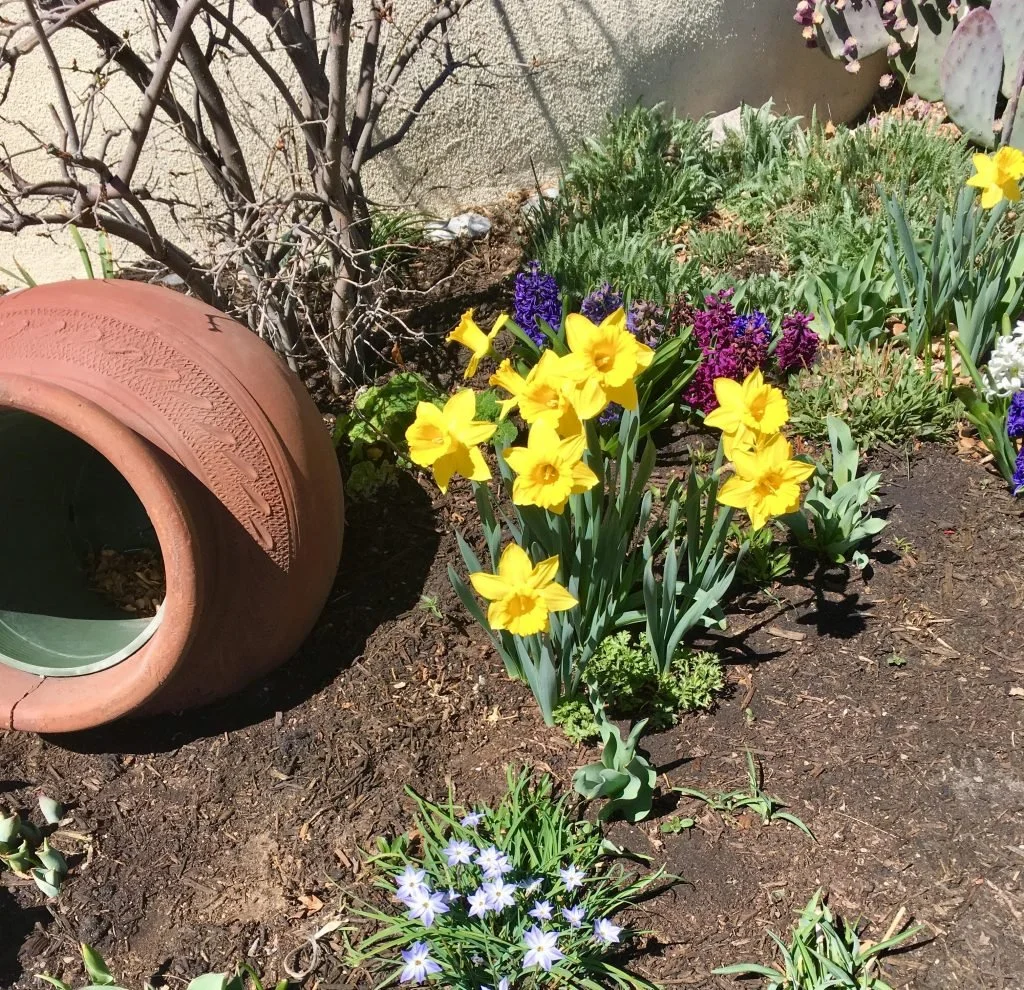You Garden
It is the time of year when I am facing an entire garden in need of pruning. And then there are income taxes to organize for our accountant, the annual slog through our bookkeeping and financial habits. I’ve come to realize that I associate the month of March with two things: garden chores and tax preparation. Fun times all the way around.
Although I like to garden, an entire yard of pruning is not appealing. Nor is anything having to do with taxes. But if I adjust the lens a bit, taxes and garden chores are simply two more versions of practice, subject to the same good principles and bad habits. Just as an entire program of music is learned one note, one phrase, one piece at a time, gardens and taxes can be broken down into equally small chunks, baby steps of progress and movement: ten minutes of daily work out in the yard, one tiny tax-related chore at a time.
This practice principle is easier for me at the piano, no doubt about it. This weekend I am playing a program with a violinist, the guest conductor for this afternoon’s Santa Fe Symphony concert. In many respects, it has been a familiar gig: a lot of music needed to be learned very quickly. In under two weeks, to be exact.
Learning a thirty-minute program is just a set of little practice tasks to be checked off one by one: reading through the music section by section, playing each hand individually, setting the metronome at the most comfortable tempo and then inching it up notch by notch, listening to recordings and making note of musical and stylistic elements of various performances so I won’t be surprised at the first rehearsal. This is well-known practice territory, habits and routines I have worn deep after years and years on the piano bench.
But if I am to be coaxed into facing more unpleasant tasks, those baby steps must be not only tiny so I won’t be overwhelmed, they must also be specific: Today I will prune two rose bushes. This morning I will make a pile of the 2017 receipts. A vague “I’ll garden tomorrow,” doesn’t get me outside very quickly. “I should look at taxes today,” hardly inspires me to dig out the files. Instead, I am much more likely to spend any extra time lying on the couch reading. Maybe while eating chocolate.
All this serves as a humbling reminder that no matter how old we are or how high functioning we might seem to be, behind the scenes, we all live and work one stumbling, limping baby step after another. Some days we just hide this better than others, deceiving ourselves into thinking that our accomplishments are achieved in great, confident leaps and bounds. They aren’t. Or at least mine never are.
My best self knows these truths about practicing well. In fact, for days and weeks at a time, I can cheerfully and faithfully plug away, pushing my various little pebbles up a mountain. I can happily spend my entire afternoons reminding students how to break down pieces into manageable chunks of learning, all the while confidently seeing the long view: this kid is becoming a musician. Day after day, I can make myself go outside and pull ten weeds coming up in the cracks along my driveway and in between the flagstones. I can sort receipts into piles and then paperclip them. Micro-movements.
Then there are other days. Days when the short-sighted side of myself whines, Ten weeds! Why even bother?
(Because a month of pulling ten weeds a day equals 300 weeds, Amy. Duh.)
This reminds me of the now-famous anecdote Annie Lamott that tells about the time her younger brother procrastinated on a big school project about birds. The night before the assignment was due, with all the reports of each feathered creature still needing to be researched and written, her brother had a meltdown, paralyzed by the sheer amount that must be done. “Bird by bird,” their father says, reminding her brother that any overwhelming job ultimately gets done one bird at a time, one tiny step followed by another tiny step. This story has become almost gospel in writing circles, but it is so applicable to practicing as well.
On the days when the sheer volume of what I have to do threatens to paralyze my efforts completely, I remember Anne Lamott’s birds. A baby step of something, a small bird of practicing, a single phrase well learned, a receipt filed, a weed pulled is better than nothing. “You know how you have a great garden,” a friend said to me recently. “You garden.” I laughed, but her words had a ring of profound truth. We want make things so complicated, don’t we? After all, the more complicated we perceive our lives and our practices, the more excuses we can generate for why we can’t get our work done. How do you have a great garden? You garden.
Bird by bird by bird.
